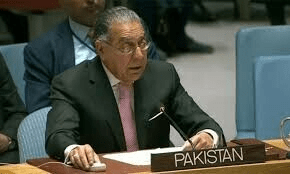ISLAMABAD, Jan 30 The federal government has decided to start the second phase of the National Education Assessment System (NEAS), which was designed to measure student learning and to develop a system to monitor the standards of education in Pakistan.
Officials told Dawn on Saturday that the government had asked the World Bank and the British Department of International Development (DFID) to extend continued support for the second phase.
“Both donors are in the advanced stages of developing a trust fund-supported capacity building programme,” the official said while seeking anonymity.
The education ministry considers the NEAS second phase imperative to ensure a sustained assessment system and has requested donors' support to further strengthen and institutionalise of it.
Officials said financing for the second phase would be made through a recipient executed trust fund facility, with funding from the DFID and the Canadian International Development Agency (Cida). However, there will be a small World Bank-executed component to support key technical assistance activities and other tasks on which the bank has a comparative advantage.
For this, the education ministry has agreed to prepare a new five-year plan in its vision for the NEAS. The new plan will build upon the existing one to reflect key priorities for the future technical assistance.
The ministry's vision for the NEAS embeds Pakistan's participation in the famous international assessments known as “Trends in Mathematics and Science Study (TIMSS)”, as it has the potential to effectively prepare the country for this major international event in 2015.
In preparation for this, it is critically relevant that the ministry builds the administrative structure and develops the technical capacity of the NEAS network so that Pakistan's education system is well positioned to compete with those of other countries of similar level of economic development that are taking part in the TIMSS, a World Bank report on the NEAS said.
The focus of the NEAS on developing a national assessment system over the last five years of implementation has resulted in substantial achievements relating to the project's institutionalisation, the building of an administrative assessment infrastructure, including the promotion of partnerships with national and international institutions; and the increase in stakeholder knowledge about the assessment.
Officials said a medium-term capacity building programme and an implementation plan had been developed. A document presenting the government's long-term vision for assessments and quality of education has also been drafted. The vision document sets forth suggestions for the institutionalisation of the NEAS and a more devolved administrative structure.











































Dear visitor, the comments section is undergoing an overhaul and will return soon.